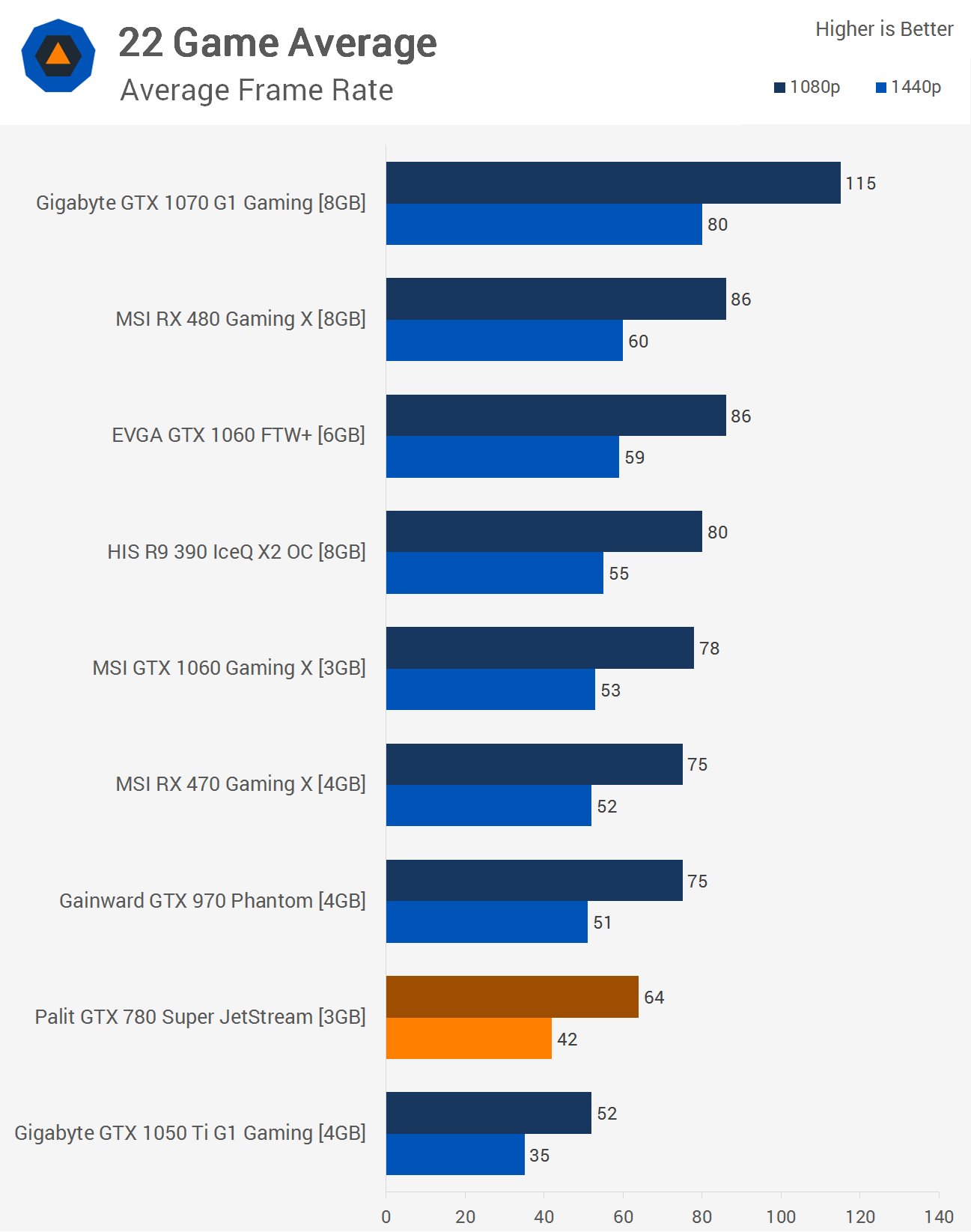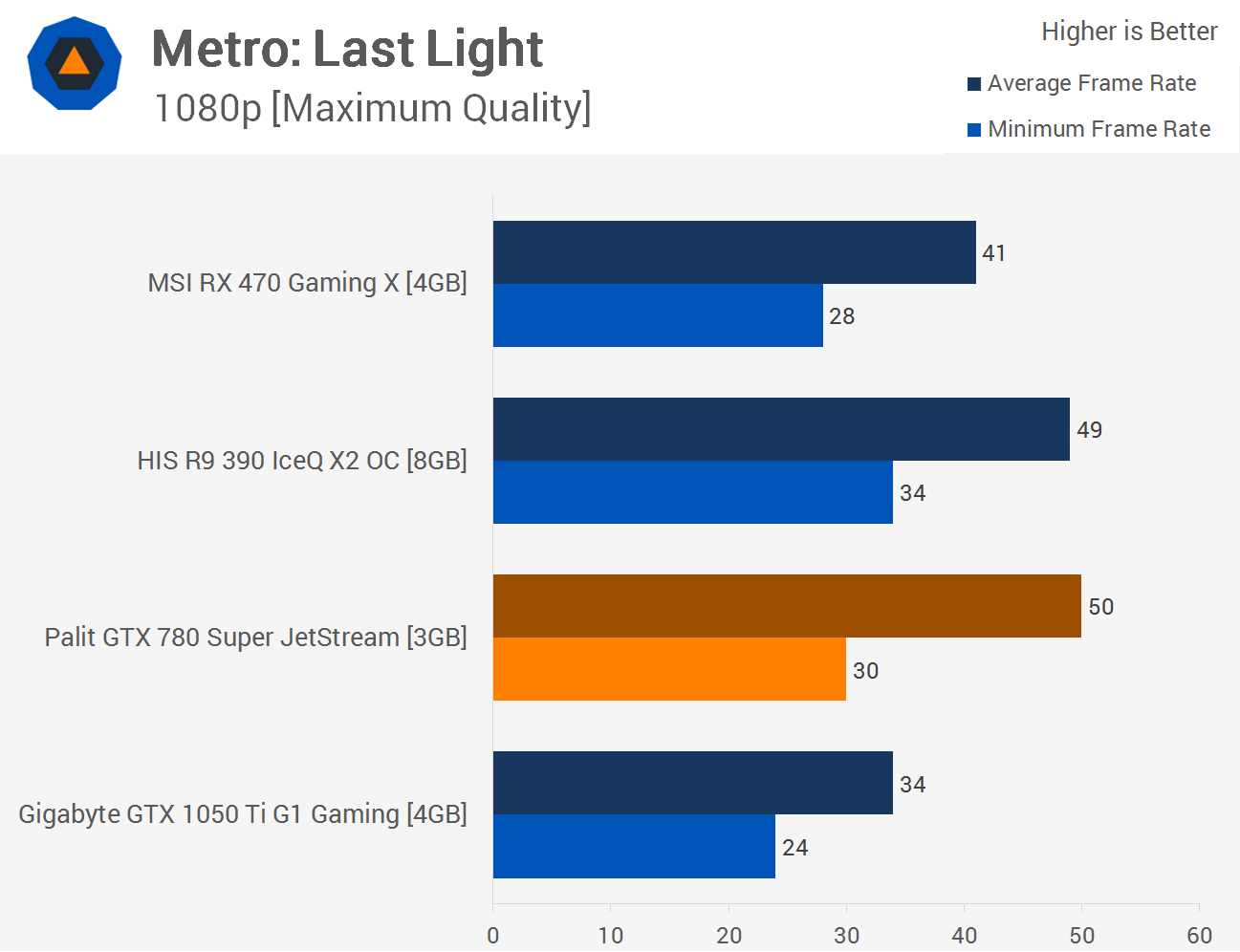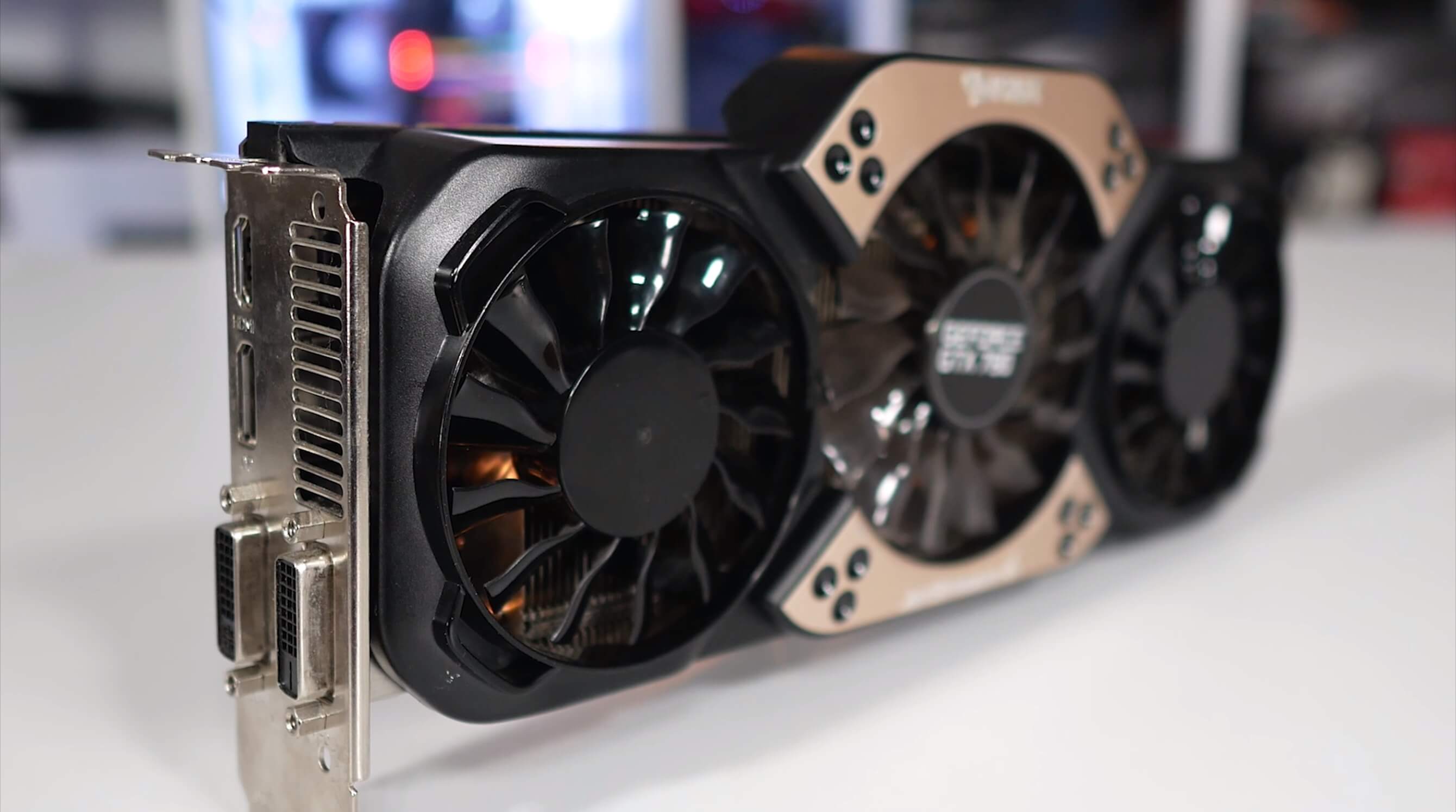Power Consumption & Performance Summary
Two weeks ago we revisited the R9 390 and some of you gave the card a hard time over its power consumption. I get that the GTX 780 is an older GPU but it still consumes quite a bit more power, increasing total system consumption by 11%.

The GTX 780 wasn't much faster than the 1050 Ti in many of the games tested, yet it increased total system consumption by almost 140%. For those running a 780, you will require a 500 watt power supply to avoid running into any problems.
In the 22 games we tested, the GTX 780 was on average 23% faster than the GTX 1050 Ti but 15% slower than the RX 470 and GTX 970. Not only that, but compared to the R9 390 it was 20% slower.
When the R9 290 first launched it was just a few percent faster than the GTX 780 and when the 390 arrived it delivered around 10% more performance than the 290 on average, so it seems over the years that margin has basically doubled.
For the margins to have remained similar, we would expect to see the GTX 780 averaging 70fps at 1080p and not 64fps.
As a reminder, the 22 games we tested are all modern releases, so for comparison's sake, let's take a look back at a couple of older titles using today's drivers.

In Metro: Last Light, the GTX 780 and R9 390 provide similar or basically the same performance, and it's also interesting to note that while the GTX 780 was just 20% faster than the 1050 Ti in modern games, it's almost 50% faster here when looking at the average frame rate. The same is true for the R9 390: whereas it was 7% faster than the RX 470 on average in modern titles, it's 20% faster here.

To verify Metro: Last Light's results I ran the Sleeping Dogs benchmark. Again, the R9 390 and GTX 780 were neck and neck, there was just a slight variance in the minimum frame rate. Meanwhile, the GTX 780 was almost 30% faster than the 1050 Ti and 20% faster than the RX 470.
Closing Thoughts
It's hard to believe that the GeForce GTX 780 is four years old, although the card is certainly showing its age. In the 22 modern titles we tested, the 780 was just 23% faster than the 1050 Ti, despite the former GPU being four times larger, packing more than twice as many transistors and consuming well over twice as much power.
Compared to the R9 390, the GTX 780 has slipped well behind. It's no secret that the Kepler architecture hasn't aged as well, which is either down to the architecture itself or Nvidia neglecting driver development – or maybe a bit of both. Regardless, we've never seen an Nvidia architecture age as poorly as Kepler has. We don't expect the same to happen to Maxwell anytime soon, but of course we'll keep an eye on its performance.
My advice for those looking to save some money by purchasing a second-hand GTX 780: don't bother. Current performance is sketchy at best. Some titles run okay while others are horrible. If you're willing to tweak the visual settings at 1080p you can achieve smooth performance in all games, but the card's power consumption is still going to be a shortcoming, especially compared to similarly performing current-gen GPUs.
Pricing for the GTX 780 is surprising. People are still asking over $100 for these things, with most being listed on eBay for between $120 and $150. Given that you can pick up a GTX 1050 Ti for $135, this makes the most sense to me. It might be a bit slower overall but it's also worlds more efficient, thus it'll run cooler and quieter. The GTX 1050 Ti is also less than a year old, which (hopefully) bodes well for future driver support.
Shopping shortcuts:
Of course, I would have suggested the RX 470 or RX 570, but good luck finding one. AMD's graphics cards are pretty much out of the question right now because of inflated prices and shortages caused by demand from digital currency miners.
